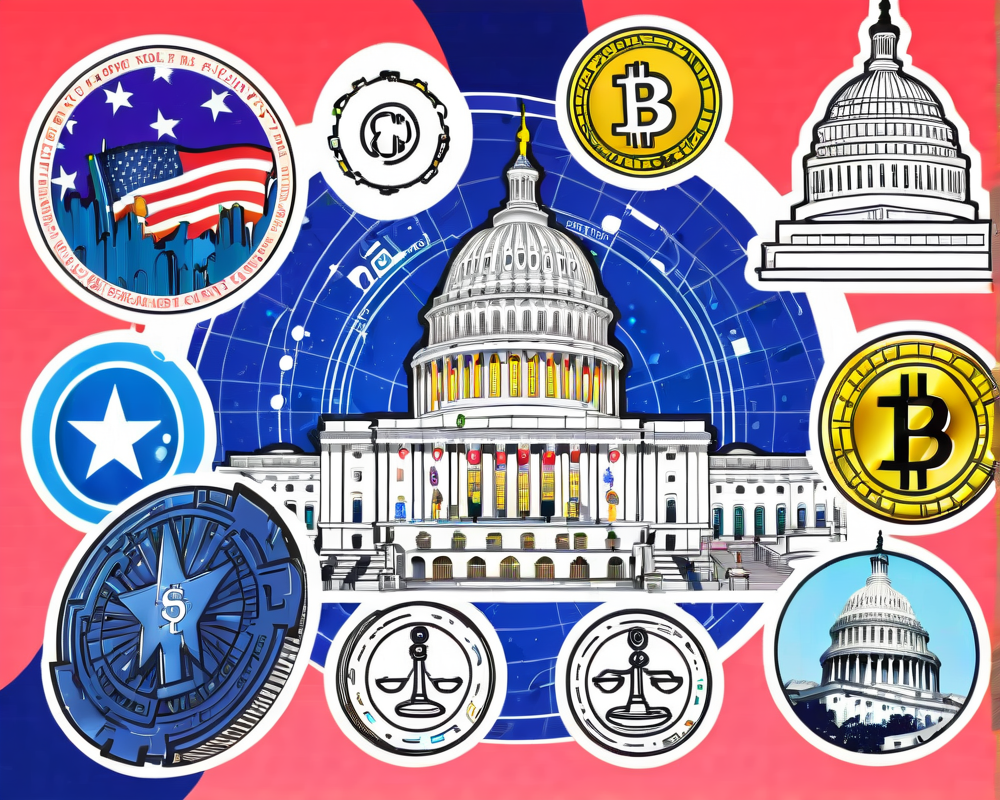Hearing Highlights: Who’s Who in the Digital Money Gameshow
On July 30, the United States Committee on Banking, Housing and Urban Affairs ticked off the latest chapter in the saga of digital currencies and blockchain technologies. The star-studded lineup included Circle’s CEO Jeremy Allaire, international trade whiz Rebecca M. Nelson, and law professor Mehrsa Baradaran from UC Irvine. Spoiler alert: it wasn’t just a friendly chit-chat over coffee; the stakes are high.
The Push for U.S. Leadership in Blockchain
Senator Michael Crapo of Idaho kicked off the proceedings with a proclamation that cryptocurrencies and blockchain are not going anywhere. In fact, he asserted that the U.S. needs to get its act together if it wants to be the “cool kid” on the crypto block. With both excitement and caution, he quipped:
“I want the U.S. to stay at the forefront of this technology, which both has incredible potential and incredible risk.”
Senator Catherine Maria Cortez Masto from Nevada echoed his sentiments, emphasizing that while the U.S. is busy figuring this all out, China is already ahead in the game.
Facebook’s Libra: The Elephant in the Room
If the hearing had a mascot, it would undoubtedly have been Facebook’s Libra stablecoin. Senator Sherrod Brown from Ohio took a firm stand against the social media giant, declaring it less trustworthy than a cat in a room full of laser pointers. According to him, Facebook is out to disrupt the U.S. dollar and any attempts at traditional payment systems under the guise of ‘innovation.’
On the other hand, Nelson cautioned that while Libra could shake things up positively, it also raises red flags regarding regulations and systemic concerns. Reminiscent of a game of hot potato, the conversation around Libra kept the lawmakers on their toes.
The Technical Backing of Libra: What Does 1:1 Really Mean?
Things took a deeper turn when Sen. Mark Warner of Virginia pressed for clarity on the meaning behind Libra’s promise of being 1:1 backed. Allaire rolled up his sleeves and explained that while earlier digital currencies aimed for a global presence, the future is about stable coins like Libra that focus on practical use cases. A game-changer? Maybe. But first, there needs to be a conversation about regulations.
Regulation: A Balancing Act
Allaire didn’t mince words when discussing the government’s current dogged approach to crypto companies. He pointed out that instead of thriving in the U.S., many digital economy players have opted to set up shop elsewhere. He argued that digital assets deserve to live in a world where they have their own identity—like finding out your long-lost cousin has a major trust fund.
“Digital money will move frictionlessly, everywhere in the world, at the speed of the internet, hopefully with a high level of security and data protection.”
As the hearing wrapped up, one thing was clear: the discussion surrounding digital currencies is not just a passing fad; it’s a crucial stepping stone toward the future of finance.
The Road Ahead: Navigating Regulatory Waters
Today’s session is part of a larger trend where regulatory scrutiny is ramping up towards cryptocurrencies in the U.S. With fingers crossed, industry players are engaging in a broader discussion that shouldn’t just focus on regulations. Topics such as identity, privacy, data security, and international approaches are all part of the grand puzzle of modern finance.



